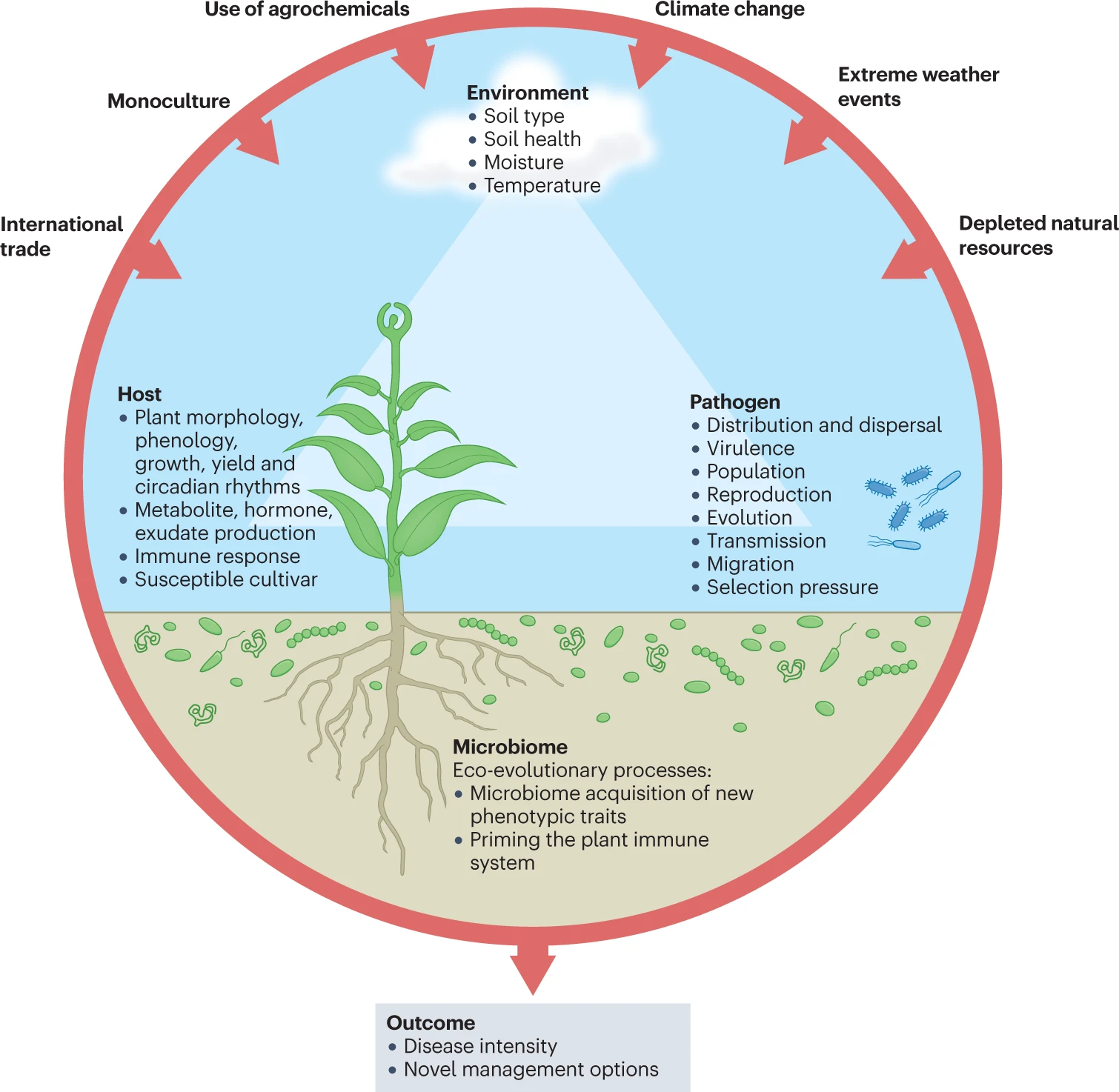May 02, 2023 | Nature Reviews Microbiology |
Plant diseases have emerged as a significant threat to global food security and the sustainability of our environment, leading to reduced productivity and biodiversity loss that detrimentally affect regions both socially and economically. The ongoing challenge is exacerbated by climate change, which alters the dynamics of pathogen development and host-pathogen interactions while promoting the emergence of new pathogenic strains. Climate shifts can also expand the geographic range of plant diseases, spreading them into new areas.
In this comprehensive review, researchers from Western Sydney University, the University of Alicante, and Colorado State University investigate how climate change is likely to reshape the landscape of plant diseases in the context of future climate scenarios. They explore the anticipated impacts on plant productivity within natural ecosystems and agriculture.
The study delves into the evolving biogeography of pathogens, changes in disease occurrence and severity, and the resulting consequences for natural ecosystems, agriculture, and food production. The authors propose that revising our current conceptual framework and integrating eco-evolutionary theories into research can enhance our understanding and predictive capabilities concerning pathogen spread in future climates, ultimately reducing the risk of disease outbreaks.
The research also underscores the critical need for a collaborative science-policy interface that collaborates closely with relevant intergovernmental organizations. This interface aims to effectively monitor and manage plant diseases under future climate scenarios, ensuring the long-term security of food and essential nutrients while safeguarding the sustainability of natural ecosystems.
Read more: Climate change impacts on plant pathogens, food security and paths forward

Fig. 1: A new angle in the disease triangle paradigm that considers the plant microbiome as a pivotal factor influencing plant disease.





